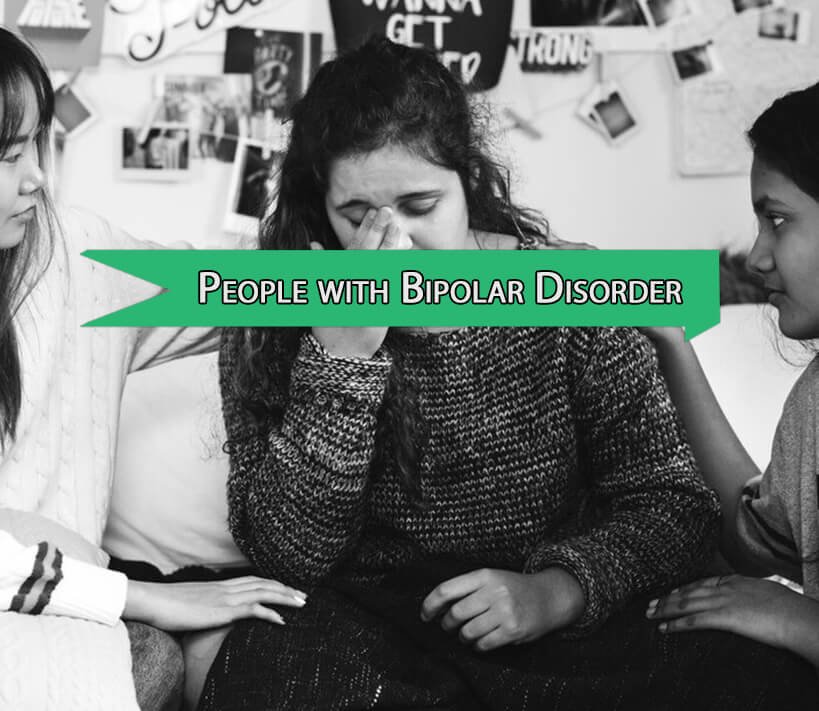Imagine a life where your thoughts are constantly swinging between two extreme ends; one moment, you are soaring high, and the next, you are plunging into despair. This is the reality for many individuals with bipolar disorder. But how do they perceive their thought processes during these emotional shifts? In this blog, we will explore the complex and often misunderstood internal world of those people with bipolar disorder.
Extreme mood swings, including manic episodes and depressive episodes, characterize Bipolar Disorder. These mood changes impact a person thoughts, behaviour, and functioning. Many people who have bipolar disorder share their experiences of how their thinking patterns dramatically fluctuate along with their moods.
- Manic Thinking
During a manic episode, a person experiences rapid thinking, jumping from one idea to another at lightning speed. People who have bipolar disorder describe their brains as operating at full speed, making it difficult to focus on one idea due to the constant influx of multiple thoughts. This often leads to impulsivity and a sense of invincibility, which clouds their judgment and is accompanied by high energy.
- Grandiosity and Confidence
Along with racing thoughts, a person also experiences a sense of grandiosity during mania. They may think they have special powers or can achieve extraordinary feats. This inflated self-esteem leads them to make reckless decisions or engage in risky behaviours as if they are untouchable.
- Depressive Thinking
On the flip side, during depressive episodes, individuals who have bipolar disorder describe their thoughts as slow and clouded. It feels as if the weight of their emotions is suffocating their mental processes. Negative thoughts about themselves, the world, and their future are common, creating hopelessness and despair.
- Cognitive Impairment
Many people who suffer from bipolar disorder report having difficulty concentrating, making decisions, and remembering things, especially during depressive episodes. This cognitive impairment affects their work, relationships, and daily functioning.
- Emotional Turmoil and Self-doubt
The constant shift between mania and depression creates emotional turmoil, causing individuals who have bipolar disorder to feel disconnected from their true selves. This describes the feeling of self-doubt, where they question whether their thoughts are authentic or a part of the disorder. During these times, individuals may also struggle with confusion and frustration, unable to trust their perceptions and emotions. The fluctuating mood states can lead to an intense internal conflict, as they may feel like different versions of themselves depending on their current state. This can strain relationships, as loved ones may not understand the reasons behind such drastic changes.
- Fear of Losing Control
During manic episodes, individuals may fear losing control of their thoughts, leading to a desire to “slow down” or “pause” the racing thoughts. Conversely, during depressive episodes, the inability to think clearly can lead to frustration and a sense of losing touch with reality.
- Uncertainty and Unpredictability
Many people with bipolar disorder express a constant sense of uncertainty, never knowing when a mood swings will hit or how long it will last. This unpredictability can make daily life like a rollercoaster ride, making it challenging to plan and maintain stability. The inability to anticipate mood changes often causes significant stress, as individuals may feel like they are constantly on edge. This uncertainty can affect their relationships, work performance, and personal goals, as they may struggle to maintain consistency in their behaviour and emotions. However, with proper treatment and support, individuals can learn to manage this unpredictability and develop strategies to cope with the fluctuations, helping them regain control over their lives.
The Role of Psychoaura
Interestingly, some individuals with bipolar disorder have described experiencing a psychoaura before the onset of a mania or depressive episode. This term refers to a sense of forewarning or an internal shift that signals a mood change is approaching. It is as though their mind energy begins to change before the emotions catch up.
Conclusion
Understanding how people with bipolar disorder think helps shed light on the complexities of the condition. Despite the challenges, many individuals with bipolar disorder find that therapy, medication, and self-awareness allow them to manage their thoughts better. They learn to recognize early warning signs of mood changes and take steps to intervene before things spiral out of control. Therapy, primarily cognitive behavioural therapy, helps them identify and change negative thought patterns, while medication stabilizes mood fluctuations. Support groups also play a crucial role in offering a sense of community and understanding. With time and practice, individuals with bipolar disorder can develop coping strategies, allowing them to lead fulfilling and productive lives despite the ups and downs.




